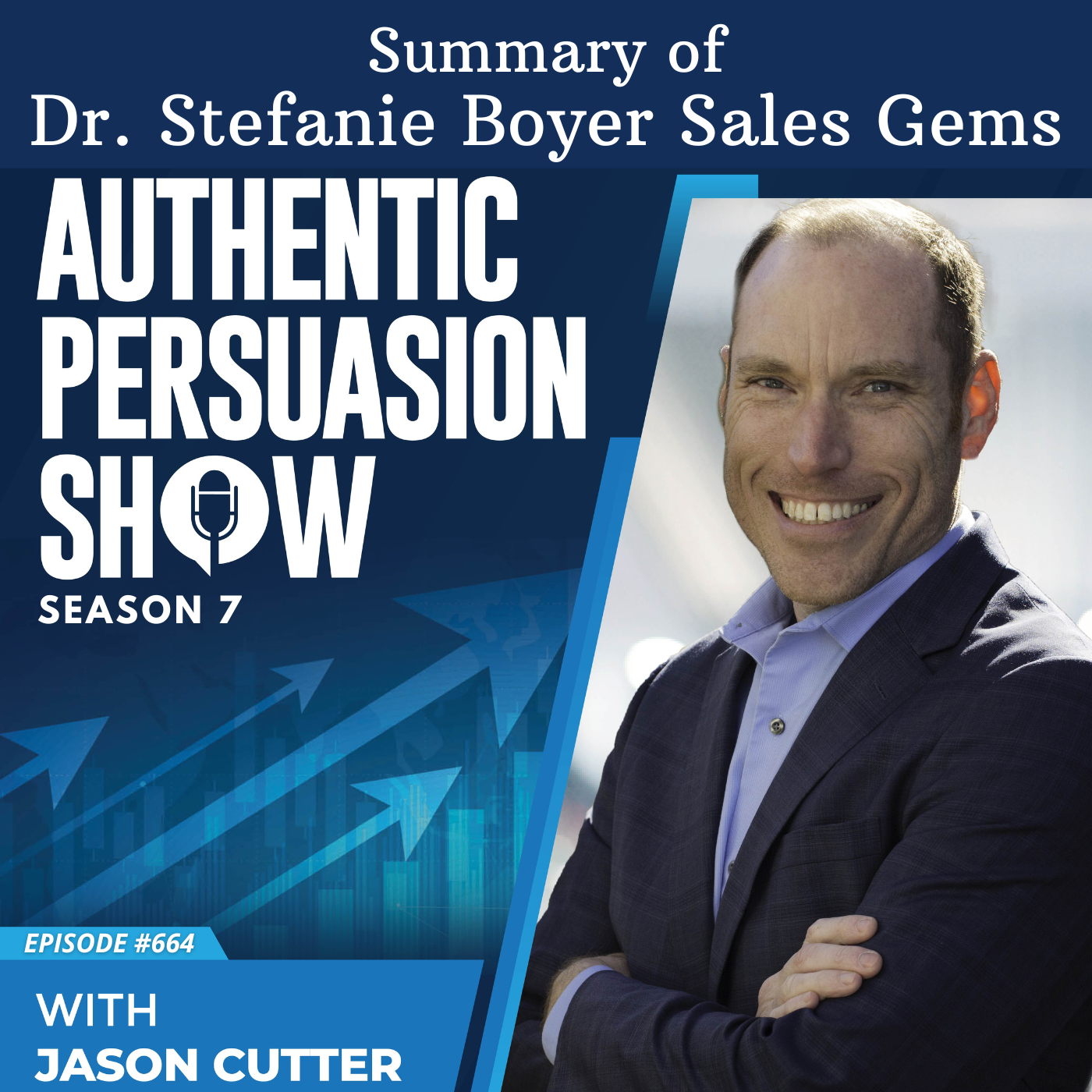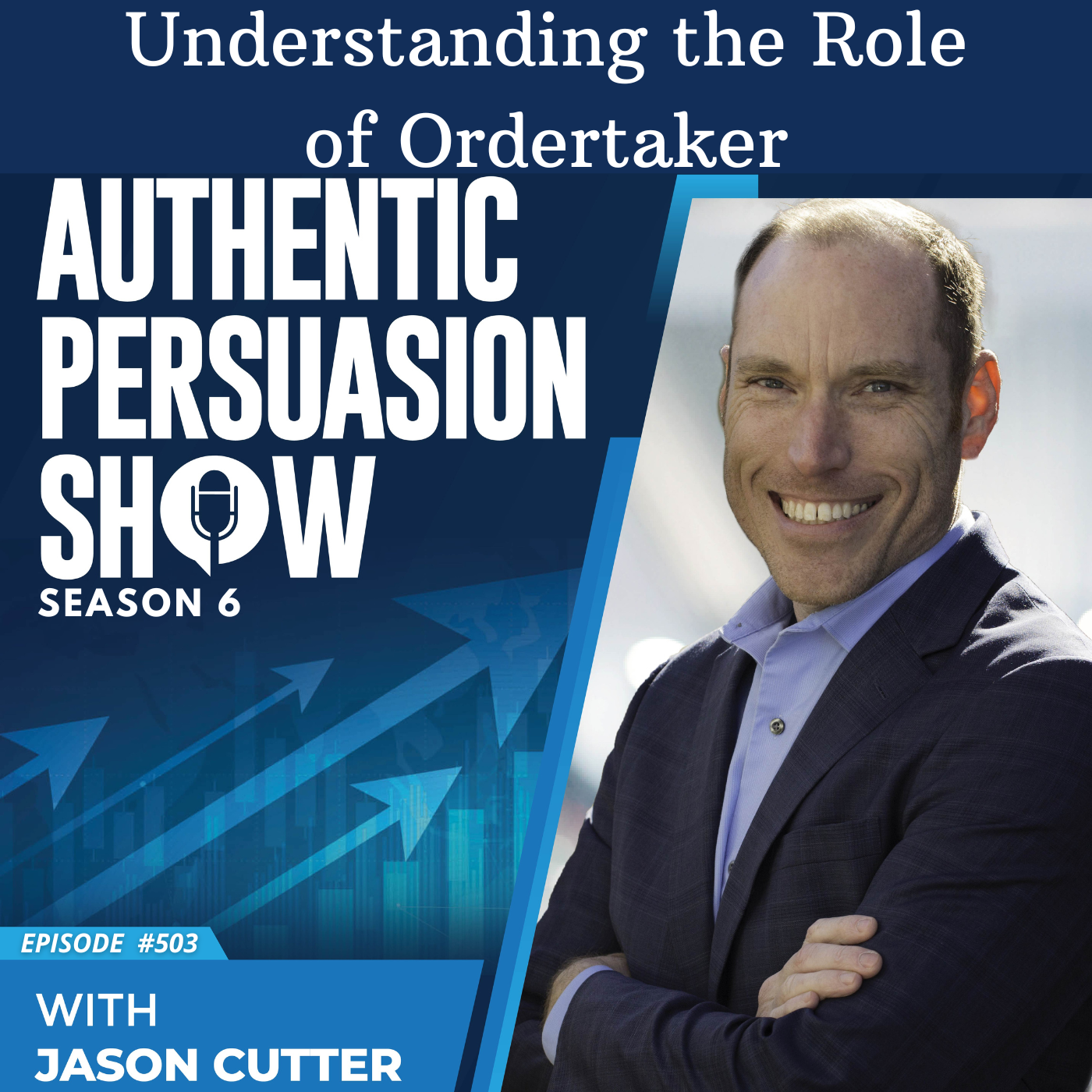Episode Transcript
Jason: Welcome to the sales experience podcast. My name is Jason Cutter and on today's episode I have another guest. Her name is Catie Ivey. She is currently the regional VP of sales at Demandbase and has been in sales for over 12 years and sales leadership roles at some companies you may be familiar with like Salesforce and Marketo. Catie, welcome to the sales experience podcast.
Catie: Thanks so much. Great to be here.
Jason: So I wanted to start, and this is a trend I've been doing recently with guests where I'm doing the research and I have the information and I see somebody's LinkedIn page and I just love the bios and I've been reading them. So I want to start off with that. So Katie's bio for anyone who wants to know, and you can also read this on her LinkedIn is I believe that great cultures produce great results, that empowered people, empower others, and that there's no limit to what a team of gritty, hardworking, genuinely curious people can do when they are committed to winning together. Now, at first when I was starting to read that Catie, I was thinking gritty and I was thinking, huh, that's not a good fit. And that sounds like the old school like harsh sales tactics. And then I read the rest. And it's funny that combination of the three with the gritty, hardworking and genuinely curious is, you know, potentially like the perfect formula for success in sales.
Catie: Oh well thanks for that. First of all, I didn't know that's where we're starting, but I'm a big fan of kind of what you just kind of laid the groundwork for. So thanks for taking the time to do that. And I agree. I mean you can't be kick ass in sales unless you've got some grit. We get told no 95% of our lives in every role in every level in the sales profession. So I just think you've got to have grit and gotta have resilience. But it is, it's so much about that intrinsic curiosity, loving what you're doing and that concept of teams. I don't think that sales is a one man show. I don't think it's a solo sport. And I think if you're surrounded by exciting, inspiring people, then the capacity for grit changes pretty dramatically.
Jason: Well, and it's interesting because on one side I think, you know sales is a solo mental game. It's you out there on your own and then like you're saying, it's also who you're surrounding or with what is your team doing? What is your coach, your leader doing to help you? And it's like you're playing golf and it's all in your head and it's how you perform and then you've got your team of people and your coaches.
Catie: Yeah, 100% there's something so incredibly magical about a team of sellers working together though. Just the knowledge sharing that happens, the inspiration that happens, the dynamic of being able to learn from one another. I mean I've been in sales for like you mentioned a long time and a lot of the folks that work for me now are really new in their career. One, two, three years in as a closer. But some of the stuff I learned from them as I'm hearing them dissect their deals and talking about their customers and the types of questions they're asking. If I'm learning from them that I guarantee the person sitting next to them in our team meeting is learning a ton from them. So I just think that there's something to be said for surrounding yourself. Again, not just by people that are killer at what they do, but by that genuinely curious person that really enjoys selling stuff and really likes business.
Jason: And when somebody is genuine and curious sitting next to somebody else who is genuinely curious, then there is that innovation and that sharing that goes back and forth and everyone's learning. And, and I know for myself, I've always enjoyed sitting, standing in a sales floor and just listening to what people are saying and picking up little gems that they use that works. Um, you know, sometimes it's new things I've never heard of. Sometimes it's reminders because we forget a lot of stuff that may have worked a long time ago and it's just good to hear new or old things back again.
Catie: Yeah. And that concept of curiosity, in my opinion, one of the harder things to teach. So it's something I very purposely hire for. I would swear that it's the only reason that I'm good at sales today. You should have heard me back in the day. It was not a natural fit for me. I don't think I hit the ground running at lightning speed like some of the sellers that I work with today, but the fact that I just really was curious about people and I liked business. It gave me a capacity to learn and improve in certain areas, which I think then obviously propelled my career since then. That's one of the first things I'm looking for when I'm trying to hire those, especially if they're younger reps without a huge track record. I think it's so important
Jason: Which is interesting because I feel the same way about myself and anyone who knows my background in history. I was not designed for sales and built for a path in sales yet I ended up in one, but I think that curiosity you're talking about, if you have the curiosity and it's genuine, then you can learn all the other bits, right? What to say, how to respond, how to move people through the transaction, but you know, the curiosity. If you don't have that, then it's painful.
Catie: Do you mind me asking what made you feel like you weren't naturally built for sales?
Jason: Uh, my mom was in banking and finance before she retired. My dad is a research engineer before he retired and I have my bachelor's degree in Marine Biology, so I didn't think I was going to be in sales. I worked in restaurants and then I did a couple of years at Microsoft doing tech support and then fell into sales when that ended and didn't actually receive any training and had to learn it the rough way. So I didn't think I was in sales. But it's interesting now that you talk about the curiosity being, you know, the Marine biology side and everything that I did for all those years, that's all curiosity pointed in the direction of science and you know, whatnot instead of sales. It's that same attribute, right? Is seeing a situation wanting to solve it, wanting to learn more, but just aiming that at sales and helping customers, you know, improve in some way.
Catie: That's fascinating. I obviously don't know you that well, but just knowing the little bit about you that I do, I would say you feel like pretty natural when it comes to the things that would make people great at sales. So your background even adds another layer of complexity there.
Jason: Well and I think that goes to what you're talking about and where I started with your profile, which is the gritty, hardworking, curious side. I have that or I've developed it more and more and then the rest of it just kind of feels natural. Which is funny when I encounter someone who feels natural at sales, it's because they have those attributes you're talking about.
Catie: Yeah. So do you think grit can be developed?
Jason: So let's talk about that because that was actually my next question. So how do you define grit other than just resilience and persistence? So there's a reason why you're using that term. Like what does that mean to you?
Catie: Yeah, it's a good question. I don't know if I've thought of it exactly in the capacity or the way that you asked the question. I mean, to me, grit very much is just that capacity for resilience and the ability to try things multiple times without getting, I mean there's, you and I have all met people that just throw up their hands relatively quickly or people that are so competitive are so prone to need to win that they're incapable or unwilling to do things if they don't see a clear path to be the best at it immediately. So to me that's an important factor of grit. Someone that's willing to try things even if they don't necessarily know the exact recipe for success yet. I think it's also tied into, you know, I've talked about this a little bit, but the concept of a growth mindset versus a fixed mindset. Um, so like I see the world as something that's actually expanding or my, you know, intellectual ability is something that grows over time versus something that's very fixed and finite. I think that's directly tied to how I look at resilience and grit for sure.
Jason: So it's funny because when I hear grit and I'm thinking gritty when I was reading your thing, I'm just imagining like dirty face dirt all over like you know, crud under the fingernails kind of like getting in there and getting dirty and not stopping.
Catie: Yeah, no, I love that and I would agree with that. I think that's, I like you're very visual. I can tell. I like the way that you put it together. I probably, my first exposure, I watched Angela Duckworth's Ted talk years ago on grit and then she wrote that book on grit. It's the same concepts of what we're talking about in terms of just as the people with the growth growth mindset, they can pick themselves after setbacks or disappointments, but it is to your point, someone that's willing to get in the trenches and fight hard through something. I think it's so important as a sales leader because we can easily think of ourselves as maybe above something or with, you know, like too good or too busy to handle X, Y, Z. But the willingness not, I literally just had a conversation with a fascinating individual that's, you know, on the job hunt. And one of the things that he had mentioned is, you know, I really, really want to work for someone that's like willing to get in deals with me and help me dissect something and sit in front of a customer. And my response was, I can't imagine being a sales leader that doesn't get in and want to get in front of customers and help dissect things. Like that's just such a core part of the job description. I think.
Jason: Yeah, for sure. I mean, in my opinion, it's tough to manage people where you haven't necessarily done their job. I don't think that's always a requirement as a sales leader. Like I think you are. I could go into an organization having not sold that specific product or service and do a great job of leading and then probably jump in and easily manage those conversations. But there's always something valuable to literally being able to be that person who's second voicing or going into meetings or helping close deals or sometimes showing how it's done. I remember, I remember used to do training with people where I'd bring them all into my office. I would, you know, make a call on speaker phone and then you know, close that deal and then hang up the phone and look at everybody and be like, okay, that's how it's done. Right. As I followed the script, I gave them word for word and they're like, okay, now we got it.
Catie: Yeah, no, it's so true. And it's funny, I think when you were talking about my bio, I was, you mentioned I'd been at Marquetto prior to joining Demandbase and I had been running a commercial, a pretty large commercial sales team for a long time, so I knew the Mar tech space and that world really well. I'd been at Salesforce and part out as well. But when I joined Demandbase, account based marketing has a lot of similarities. I apologize for the background noise. I'm just figuring out how to turn my Slack notifications off as we speak. So let me quick clip that really quick. And I was like three little digs only been talking as I should have done that beforehand. But that was one of the first things I did when I joined Demandbase is recognizing, okay, there's certain aspects of the job that I'm super familiar with and I know inside and out and are very similar to what I've sold and managed people selling at Marquetto and other places, but there were certain pieces that were different and so I ran three sales cycles from start to finish. Obviously reps got credit for those and I was very engaged and worked with them in the process, but like I needed to make sure I was going to understand and how we're actually getting these deals done and what successful customers look like in order to really be able to coach through the process.
Jason: I remember one of my first sales management jobs, basically I was hired and I was hired as a sales manager and my boss basically said, okay, you're a sales manager. You only have one rep. He doesn't really know what he's doing. There's no script, there's no process, there's no system. Go sit in a desk, close five deals, figure out what you're doing and then we can start hiring. And I remember closing them in five deals in five days. And he was shocked because my boss was an operations guy, he's like, it took me a month to close my first deal. And I was like, well, you're an ops guy and I'm a sales guy. And so, you know, then I, but then I could speak to it and train everybody and write the script based on what worked and then, you know, evolve from there. So I think that's always powerful.
Catie: Five days, man. I'm jealous of that.
Jason: Yeah, well it was business to consumer so that helps. So keep that in mind, but still it was, it was what they had never seen done there. And then, uh, you know, set the precedent.
Catie: I'm in the thick of Q4 close with my reps right now, so I can use some five.
Jason: I'll work on that for sure. Alright. Everybody gets it for part one of my conversations with Catie. I will tell you from knowing the inside secret of how this conversation went when we recorded it, that we had a great time. We went for the full session that we were expecting and just talked all over the place about sales and success and what that looks like and leadership. So make sure you subscribe to the podcast so you can catch out the other episodes as soon as they come out. You can also rate and review the show and then of course go to the website cutterconsultinggroup.com where you can find this podcast, the transcript. Also, all of Catie's links prior to the final part of the show so you can get in touch with her based on what you're hearing. And as always, keep in mind that everything in life is sales and people will remember the experience you gave them.
![[E152] Sales Grit with Catie Ivey – Part 1 of 4](https://episodes.castos.com/salesexperiencepodcast/images/Catie-Ivey-Cover-Image.png)


